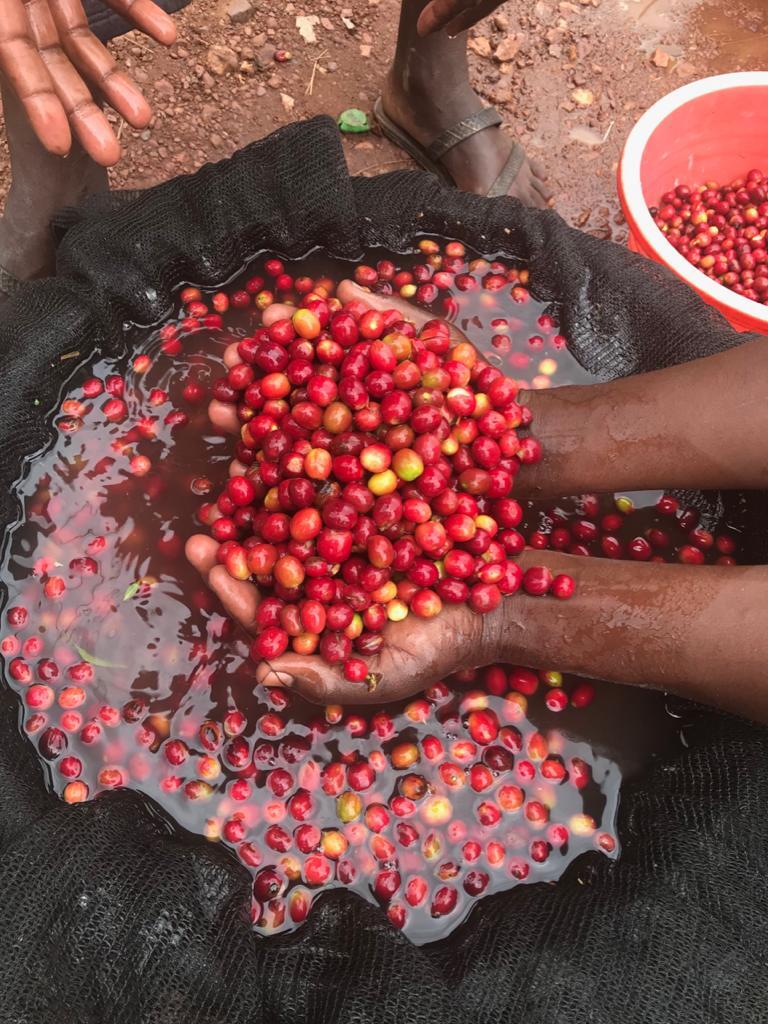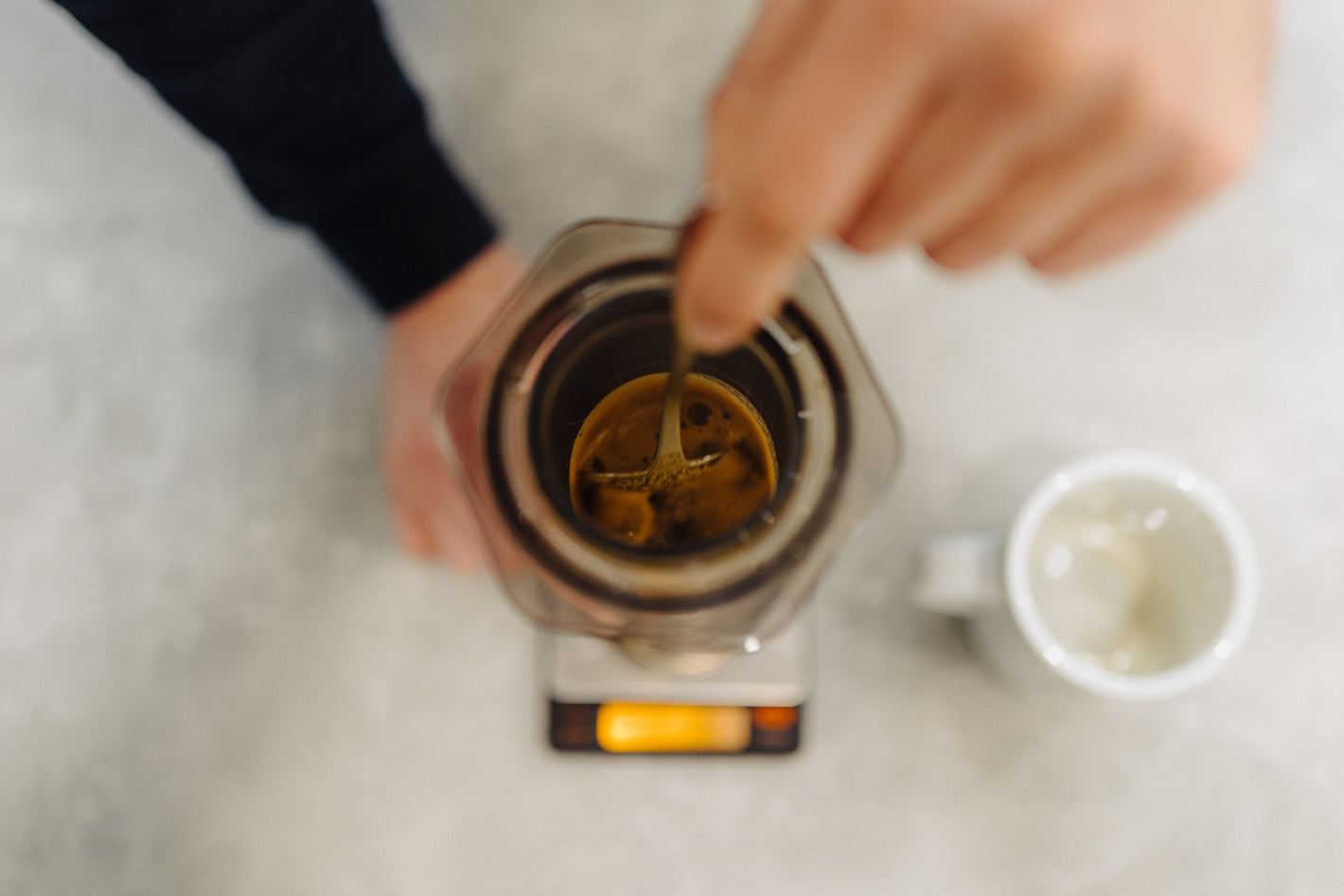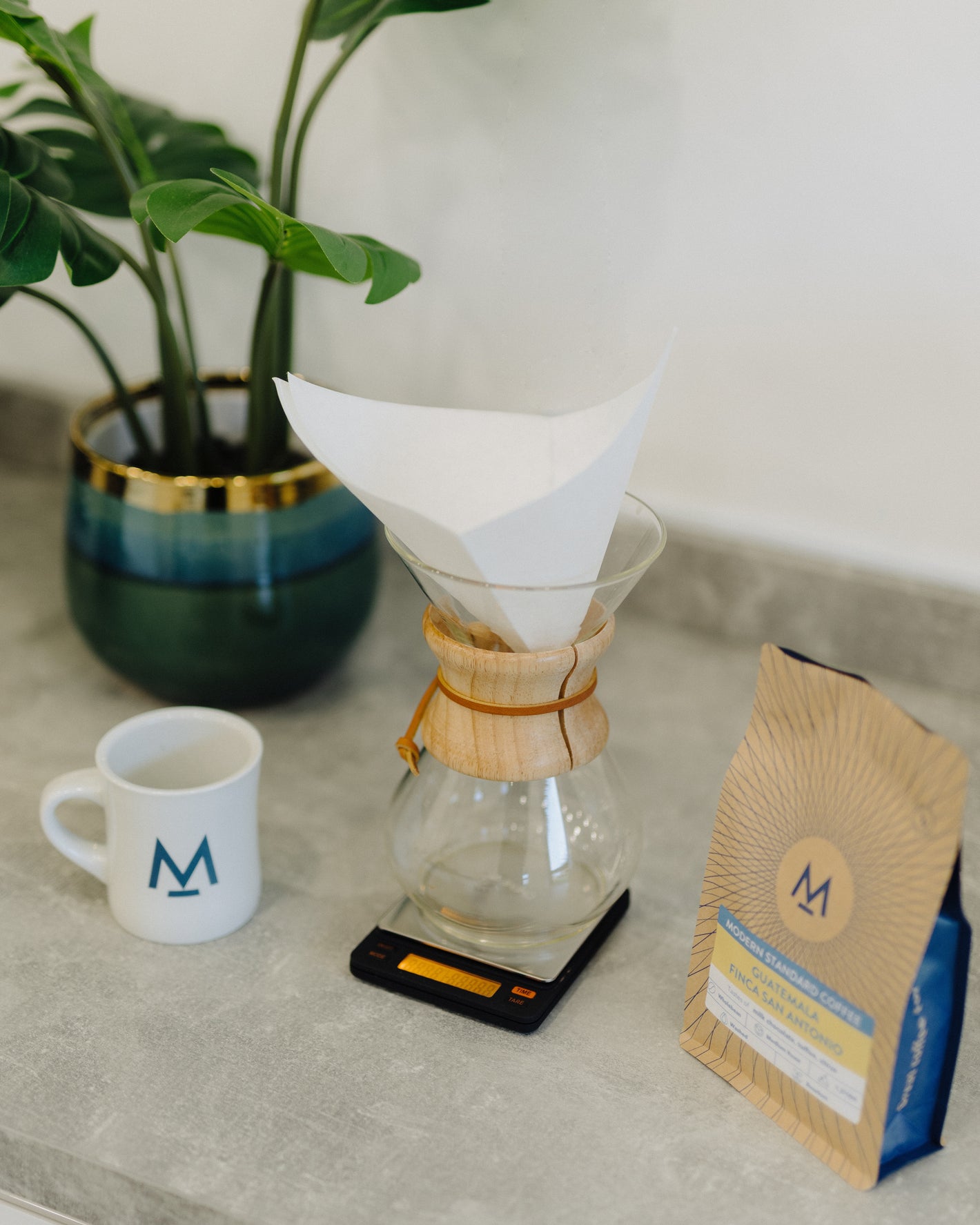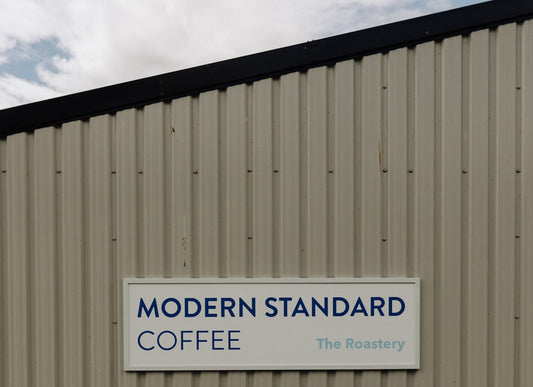



The overview
| Countries of origin | Rwanda |
| Producer | Musasa |
| Altitude | 1526m |
| Varietal | Bourbon |
| Process | Washed |
The producer
The Cooperative Coffee Rusiga Sector brings together smallholder farmers in the high-altitude hills of Rulindo, with most farms sitting above 2,000m. Founded by women producers and strengthened through support from Jacquie and the Kinini network, the cooperative is organised into twelve village-based groups. This structure gives farmers access to training, agronomy support, and shared resources while ensuring they retain full leadership and ownership. Farms are typically intercropped with beans, legumes and sweet potatoes, supporting both household nutrition and local biodiversity.
The coffee
Ripe cherries are hand-picked by farming families and delivered to nearby washing stations. They undergo a 24-hour dry fermentation, followed by traditional wet processing and an additional 24-hour soak to enhance clarity and sweetness. After washing and grading, the beans are dried slowly on raised beds, producing a syrupy-bodied coffee with exceptional longevity and layered flavour. Expect elegant festive notes of orange, peach and tea rose.
£1 from every bag sold is donated to The Salvation Army’s Christmas Appeal.
Why we love it
I have a personal link to The Salvation Army, and it's great to raise money for them with this coffee, that is not only delicious but helping a good cause.
Adrien's Brew Guide
Out: 31-33g
Time: 24-26s
Water: 305g
Ratio: 1:17


Musasa Washing Station
All farmers delivering to Musasa station live within a 15 kilometer radius. After selectively hand-harvesting their coffee, they transport the cherry to the washing station using a variety of means. Cherry is then inspected and hand-sorted to remove any damaged cherries or under-ripe before they are weighed and loaded into the station’s pulper. Farmers receive a payment in line with the quality and quantity delivered.
Musasa uses a Pinhalense eco-pulper, which separates ripe and underripe/underweight cherries again, along with removing any debris remaining with the cherries. This pulper uses one cubic meter of water to process up to 20 tons, significantly reducing the environmental footprint of the washing station.
After pulping, coffee is delivered to the fermentation tanks to ferment for around 24 hours. After this, the coffee is thoroughly washed in clean water and all traces of mucilage are removed from the beans.
Then, coffee is delivered to one of the washing station’s 300 drying tables. Once here, parchment will be turned every 30 minutes initially and covered during the hottest part of the day. Drying usually takes an average of 1 to 2 months, though the time required varies depending on the climate at the time.

The Salvation Army Christmas Appeal
Every Christmas, we donate £1 from every bag sold to The Salvation Army's Christmas Appeal.
As an business who prides itself on people and planet before profit, we are proud to end our year of giving with donations to The Salvation Army.
Each year, The Salvation Army helps thousands of people, providing a warm space, hearty food and listening services and support to those who are most vunerable in society. One of the Modern Standard team, Adrien, is the great great grandson of the founding Booth family, and we supply coffee to many of the Salvation Army churches throughout the UK.
To date, we have raised over £5,000 for The Christmas Appeal, and we appreciate each purchase made is helping someone in need.














